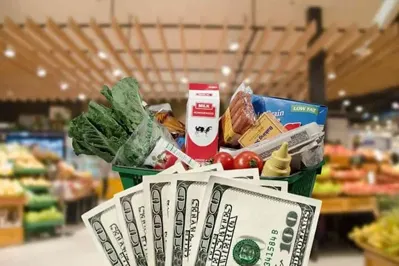Grocery benefits help seniors afford nutritious food, reducing the risk of food insecurity. In addition, certain plans offer coverage for meal delivery services, providing easy access to healthy meals.
![]()
Grocery Benefits: A Lifeline for Seniors
Grocery benefits, often provided through government assistance programs, are a vital resource for seniors, giving them access to nutritious food and helping combat food insecurity. These benefits ease the financial strain of buying groceries, allowing seniors to direct their limited income toward other essential needs like housing, healthcare, and transportation.
Research from the Center on Budget and Policy Priorities shows that about 1 in 5 seniors in the U.S. faces food insecurity. Grocery benefits play a key role in addressing this issue by offering financial support dedicated to food purchases. This assistance helps seniors maintain a nutritious diet, promoting better health and reducing the risk of chronic conditions linked to poor nutrition.
In addition to improving nutrition, grocery benefits also support the economic stability of seniors. By lessening the cost of food, these benefits free up funds that can be used for other critical expenses, enhancing financial independence and resilience. This empowerment allows seniors to stay active in their communities, engage in social interactions, and enjoy a higher quality of life.
Combating Food Insecurity with Grocery Benefits
Grocery benefits emerge as a powerful tool in the fight against food insecurity among seniors. These benefits directly address the root cause of food insecurity – lack of financial resources – by providing targeted financial assistance for food purchases. This targeted approach ensures that seniors have access to sufficient nutritious food, promoting overall health and well-being.
The impact of grocery benefits in reducing food insecurity is well-established. A study published in the Journal of the American Medical Association Internal Medicine found that seniors receiving grocery benefits saw a significant decline in food insecurity. This improvement was linked to better overall health, reduced healthcare usage, and lower rates of depression.
Beyond addressing immediate hunger, grocery benefits also promote long-term food security. By offering consistent financial aid, these benefits allow seniors to plan meals more effectively, make healthier food choices, and rely less on emergency food assistance. This ongoing support helps seniors take control of their food security, fostering greater self-reliance and preserving their dignity.
Expanded Options for Nutritious Meals
In recent years, there has been an increasing awareness of the critical role nutrition plays in healthy aging. In response, several states have expanded grocery benefits to include a wider variety of food items, improving the nutritional options available to seniors. These expanded benefits cover fresh fruits, vegetables, whole grains, and lean proteins, ensuring seniors have access to the essential nutrients needed for optimal health.
This broader selection of nutritious foods aligns with the dietary guidelines for older adults set forth by the Academy of Nutrition and Dietetics. These guidelines highlight the importance of nutrient-dense foods to maintain a healthy weight, lower the risk of chronic illnesses, and support cognitive health. By offering access to a diverse range of healthy food options, expanded grocery benefits enable seniors to make better food choices, supporting healthy aging and overall well-being.
Additionally, expanded grocery benefits help sustain the healthcare system by promoting healthier diets among seniors. By lowering the risk of chronic diseases, these benefits reduce healthcare costs associated with managing such conditions. This preventive approach supports healthier aging, lessens the strain on healthcare resources, and generates long-term cost savings for both individuals and the healthcare system.
Conclusion
For those looking to learn more about grocery benefits and their impact on seniors, there are numerous resources available. The National Council on Aging (NCOA) offers detailed information on grocery benefits, including eligibility criteria, application procedures, and available support services. Additionally, the Food and Nutrition Service (FNS) under the U.S. Department of Agriculture (USDA) provides extensive insights into federal nutrition assistance programs, such as the Supplemental Nutrition Assistance Program (SNAP), which offers grocery benefits to low-income individuals and families.


